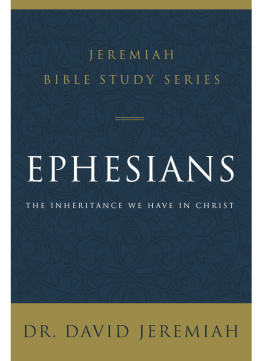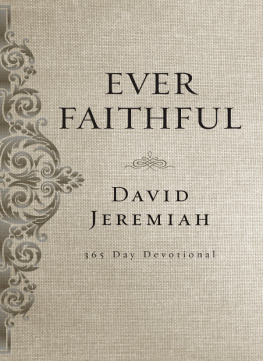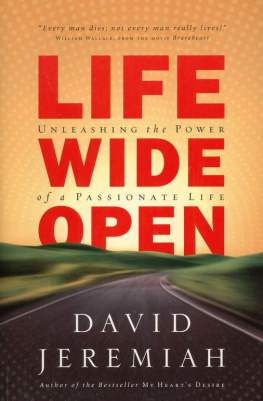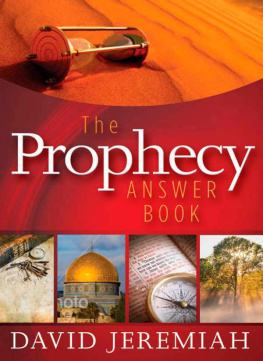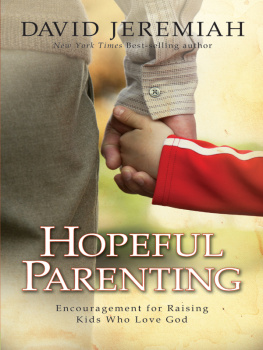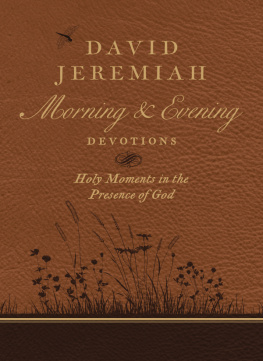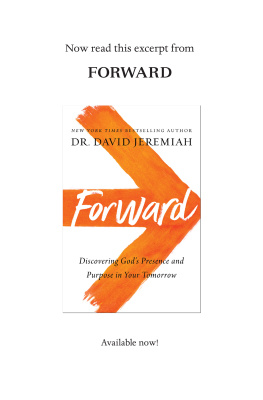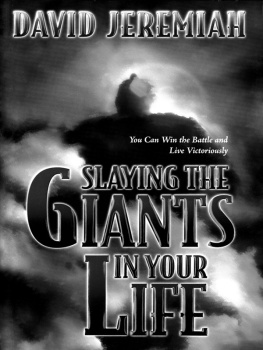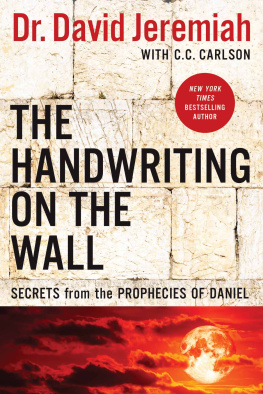READERS GUIDE
FOR PERSONAL REFLECTION AND GROUP STUDY
FOR PERSONAL REFLECTION
Settle into your favorite chair with your Bible, a pen or pencil, and this book. Read a chapter, marking portions that seem significant to you. Write in the margins. Note where you agree, disagree, or question the author. Look up endnotes and relevant Scripture passages. Then turn to the questions listed in this study guide. If you want to trace your progress with a written record, use a notebook to record your answers, thoughts, feelings, and further questions. Refer to the text and to the Scriptures as you allow the questions to enlarge your thinking. And pray. Ask God to give you a discerning mind for truth, an active concern for others, and a greater love for Him.
FOR GROUP STUDY
Plan ahead. Before meeting with your group, read and mark the chapter as if you were preparing for personal study. Glance through the questions, making mental notes of how you might contribute to your groups discussion. Bring a Bible and this book to your meeting.
Arrange an environment that promotes discussion. Comfortable chairs arranged in a casual circle invite people to talk with one another. The arrangement says, We are here to listen and respond to one anotherand to learn together. If you are the leader, simply be sure to sit where you can have eye contact with each person.
Promptness counts. Time is as valuable as money to many people. If the group runs late (because of a late start), these people will feel as robbed as if you had picked their pockets. So, unless you have mutual agreement, begin and end on time.
Involve everyone. Group learning works best if everyone participates more or less equally. If you are a natural talker, pause before you enter the conversation. Then ask a quiet person what he or she thinks. If you are a natural listener, dont hesitate to jump into the discussion. Others will benefit from your thoughtsbut only if you speak them. If you are the leader, be careful not to dominate the session. Of course, you will have thought about the study ahead of time, but dont assume that people are present just to hear youas flattering as that may feel. Instead, help group members make their own discoveries. Ask the questions, but insert your own ideas only as they are needed to fill gaps.
Pace the study. The questions for each session are designed to last about one hour. Early questions form the framework for later discussion, so dont rush by so quickly that you miss valuable foundation. Later questions, on the other hand, often speak of the here and now. So dont dawdle so long at the beginning that you leave no time to reach a personal level. While the leader must take responsibility for timing the flow of questions, it is the job of each person in the group to assist in keeping the study moving at an even pace.
Pray for each othertogether or alone. Then watch Gods hand at work in all of your lives.
Notice that each session includes the following features:
Session Topic a brief statement summarizing the session.
Community Builder an activity to get acquainted with the session topic and/or with one another.
Discovery Questions a list of questions to encourage individual or group discovery and application.
Prayer Focus suggestions for turning ones learning into prayer.
Optional Activities supplemental ideas that will enhance the study.
Assignment activities or preparation to complete prior to the next session.
WHAT TO DO WHEN THE HEATS TURNED UP
JAMES 1:112
Session Topic
Trials and temptations will come. The question is, how will we respond?
Community Builder (Choose One)
1. Describe an experience when you were significantly refined by a difficult situation. What did you learn about yourself? About life? About God?
2. Name the wisest person you know. Give an illustration, if you can, of that persons wisdom.
Discovery Questions
1. Read aloud James 1:112. What do you see in this passage that is contrary to current secular thought?
2. Do you think James is saying that we have to be happy when bad or difficult things happen to us? Explain.
3. James says that testing produces patience. Do you think this happens automatically? If not, what do you think you can do during a time of testing that would lead toward patience?
4. Why would believers rejoice in times of sufferingother than because they would learn endurance?
5. When something terrible happens to us, it is easy to wonder what we did to deserve it. Jobs friends assumed that God was punishing him; they told him to confess his hidden sin. Do we need an explanation for our trials before we can trust God? Explain.
6. What do you find in James 1:112 that would help you endure sufferingeven if you never discovered its reason? (Check each verse.)
7. What connections can you draw between suffering and wisdom? (Consider several verses from the James text as well as your own observations of life.)
8. Movies, television, magazines, websites, and even some media preachers tell us we should try to escape from difficulty and pain. What influence do you think these forces have on you?
9. Having faith in Christ doesnt guarantee that we will be happy, financially secure, or have perfect marriages. What, according to James, does persevering faith guarantee? Of what value is that promise to you?
10. Suffering can create opportunities to know God. What has God shown you about Himself through your own periods of grief or hardship? (Be specific.)
11. James says that God can use suffering to bring us wisdom and patience. What practical advice would you offer a suffering friend who wanted to allow God to grow him or her in that way?
Prayer Focus
- Jesus said that His followers would face persecution because of their belief in Him. But Jesus suffered on the cross so that our suffering would not be in vain. Thank Jesus for the gift to you of His own suffering.
- Read aloud 1 Peter 4:1216. Take some time now to pray about those situations in your life where you see God allowing you to suffer for His sake.
- Thank God for the opportunities He gives you to grow as His child. Ask Him to provide you with the grace to be His witness even during periods of hardship.
Optional Activities
1. Meditate on the teaching of Peter in 1 Peter 2:2025. Take time to ponder the suffering that Christ endured on your behalf so that you might live free from the power of your sins. How does the awareness of Christs sacrifice cause you to respond to Him?
2. How do you define fulfillment ? What does it look like to you? Record your thoughts so you can review them later.
Assignment
1. If you do not already keep a journal, begin one this week. Start keeping a record of your insights concerning the book of James. Each week focus on the particular passage you have studied. Make journaling a regular part of your devotional time. What have you learned about trials this week?
2. Read chapter 2 of What to Do When You Dont Know What to Do .
3. Memorize James 1:24.
WHAT TO DO WHEN WRONG SEEMS RIGHT
JAMES 1:1318
Session Topic
Temptationits what we do with it that matters.
Community Builder (Choose One)
1. Think of a time when you were tempted by something but overcame the impulse to give in. What was so attractive about the temptation? What helped you to resist it?
2. Name a song or movie that talks about temptation. What message about temptation does that song or movie convey? Do you agree with its message?
Discovery Questions
1. Read aloud James 1:1318. If you were to create a painting for each of these two paragraphs (vv. 1315 and 1618), what would you include in each painting? (Consider color, lines, objects, brushstrokes, and how you would want the observer to feel.)
Next page

